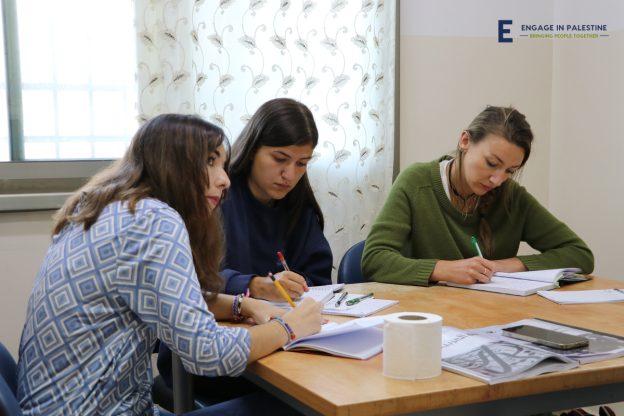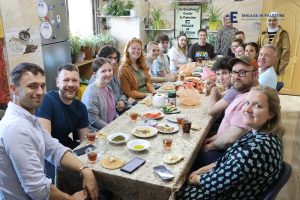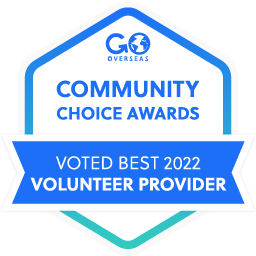Your Guide To Studying Arabic: This is a big deal, and a great decision as Arabic is around 2,000 years old, although it has evolved since its origin in the Arabian Peninsula. The Arabic language is only growing in importance and today it’s the fourth most spoken language around the world, after Chinese, Spanish, and English, with around 362 million native speakers. Additionally, Islam is the fastest growing religion in the world and there are currently over two billion Muslims.
This has spread Arabic around the world as it’s the language of the Holy Qur’an and is therefore an important language for all Muslims. Many Westerners are also surprised to learn that there are other religions besides Islam in the Arab World and that many Druze, Christian, and Jewish Arabs also speak Arabic.
With all that said, this is your guide to studying Arabic.
Arabic Is Spoken Across An Important Region
The Middle East and North Africa (MENA) is a very important region, historically, culturally, and economically, Arabic is therefore very important if you wish to work, live, or travel here. Equally, if you are interested in the region, Arabic is a great language to study, which will help you learn more about the region, its literature, its cultures, and its people. Learning any new language will always teach you more about your language when you find the similarities and differences. Additionally, learning Arabic or any other language will give you insight into the mindsets and mannerisms of people who speak the language.
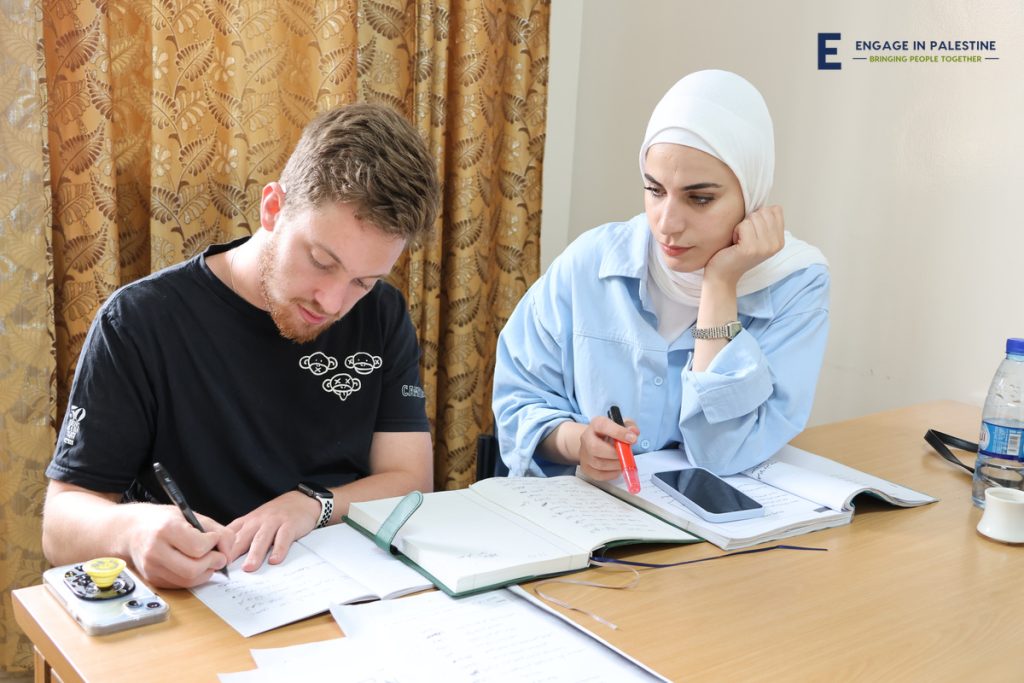
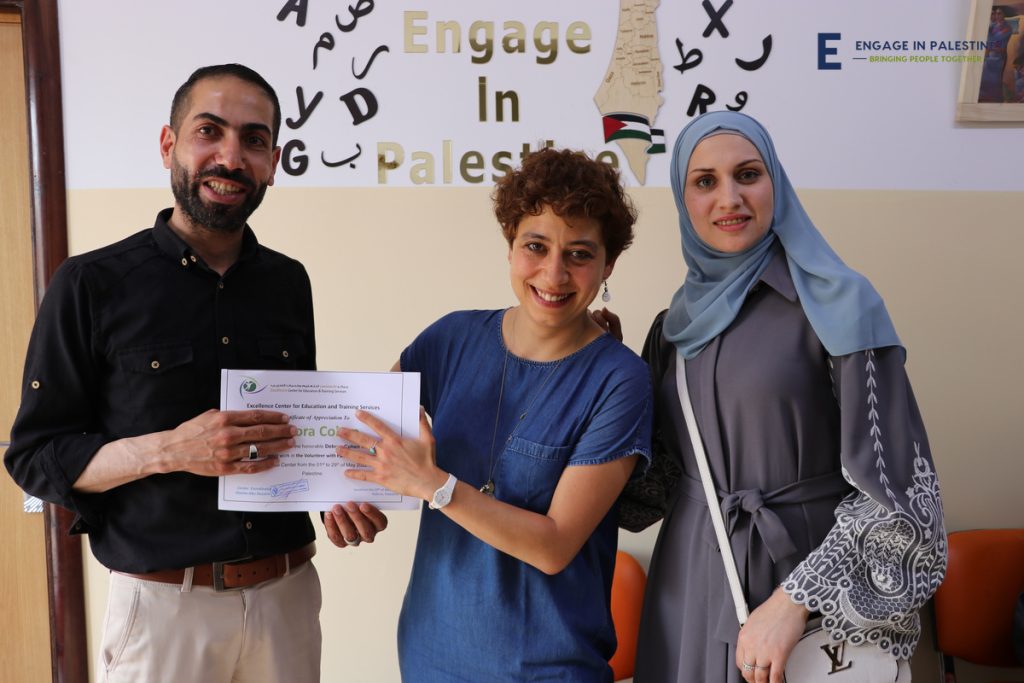
In this guide, we will talk you through some tips that will help you learn the language quickly and effectively and also make a recommendation for where you can study the language in the Middle East.
Table of Contents
But Wait… Which dialect??
Arabic is a fascinating language – did you know that it’s the official language of Algeria, Bahrain, Chad, Comoros, Djibouti, Egypt, Eritrea, Iraq, Jordan, Kuwait, Lebanon, Libya, Mauritania, Morocco, Oman, Palestine, Qatar, Saudi Arabia, Somalia, Sudan, Syria, Tanzania, Tunisia, the United Arab Emirates and Yemen? Additionally, western colonization and imperialism have created a large Arab diaspora around the world, with many native Arabic speakers needing to flee their homelands for other non-Arab countries. Because Arabic is so widely spoken, it’s therefore made of many different dialects, with some estimating that there are around 30 modern variants or dialects.
Modern Standard Arabic
In most classrooms outside of MENA, students will be taught Modern Standard Arabic (MSA), a kind of catch-all formal version of the language which might be the best way to learn the language until you know which dialect you want to specialize in. MSA is the formal language used in education, formal speech, literature, and the news.
MSA developed from Classical Arabic (the language of the Holy Qur’an), which was also used for Islamic literature between the 7th and 9th centuries. However, if you wish to converse with native Arabic speakers, it’s best to choose a dialect to specialize in because native Arabic speakers generally don’t speak MSA in their daily lives. They are likely to understand you speaking MSA to them, but you will likely not fully understand them when they respond to you in their dialect, which inevitably creates communication barriers.


Local Arabic Dialects
Local people in each country or region speak their variant. The different dialects across the Arab World share many similarities with the Modern Standard format, but will usually have different vocabulary and grammatical structures, some variations in pronunciation along being spoken in different accents. Even from one city or village to the next, there can be differences.
Northern African countries have dialects that differ quite substantially from Middle Eastern Arabic due to the different linguistic influences there. For example, one of the lasting impacts of the French colonization of African countries is the influence on the way Arabic is spoken there and fusing it with French in some regards.
Khaliji And Shami
The two most popular dialects in the Middle East are Khaliji (Gulf Arabic) and Shami (Levantine Arabic). Khaliji is spoken in the Gulf states like the UAE, Kuwait, and Qatar, while Shami is spoken by all Arabic countries near the Mediterranean Sea: Syria, Lebanon, Palestine, and Jordan. Critically, most Arabic speakers can understand the Levantine dialect because it’s the most commonly recognized as it’s the closest to Modern Standard Arabic, while other dialects may be less likely to be understood by an outsider. This makes learning Levantine Arabic a wonderful choice for those considering which dialect to learn.
So Which Dialect Should You Choose When Studying Arabic?
Before you begin learning Arabic, first decide which type to learn – MSA or a local dialect. There is an abundance of MSA classes and study materials available, making it accessible to learn but not necessarily useful, depending on what your goals are. Decide what your goals are and what you wish to do with Arabic, and then you can decide which type is best for you.
Keep reading to find some tips to help you learn, once you have decided which Arabic dialect to learn.
Should You Learn The Arabic Alphabet?
Some people think learning the Arabic alphabet is too difficult, so they use Arabizi, a mix between “3arabi” and “Inglizi” (“Arabic” and “English” in Arabic, respectively) instead. This involves using the Latin alphabet and numbers to represent sounds that are not found in English. For example, the name “Mohammed” can be written as “M7md” in Arabizi.
However, if you do not learn the Arabic alphabet, you will not be able to read and write, you will therefore have difficulty learning new words on your own. Learning the Arabic alphabet will also help improve your pronunciation, as using the English alphabet or Arabizi often gives inaccurate pronunciation.
It Doesn’t Have To Be Overwhelming
Learning the Arabic alphabet can seem too overwhelming at first, for several reasons. Firstly, it’s different from the Latin alphabet, it’s written in cursive and read from right to left, which is not as difficult as it seems. Additionally, each letter has four variations – the beginning, the middle, the end, and the isolated form.
We recommend that you focus on learning the isolated forms of each letter first, and practice writing words using isolated letters, without joining them. Once you can write all the isolated forms confidently, you can begin to learn to join the letters and learn the other forms. This will incrementally build your proficiency rather than overwhelm you.

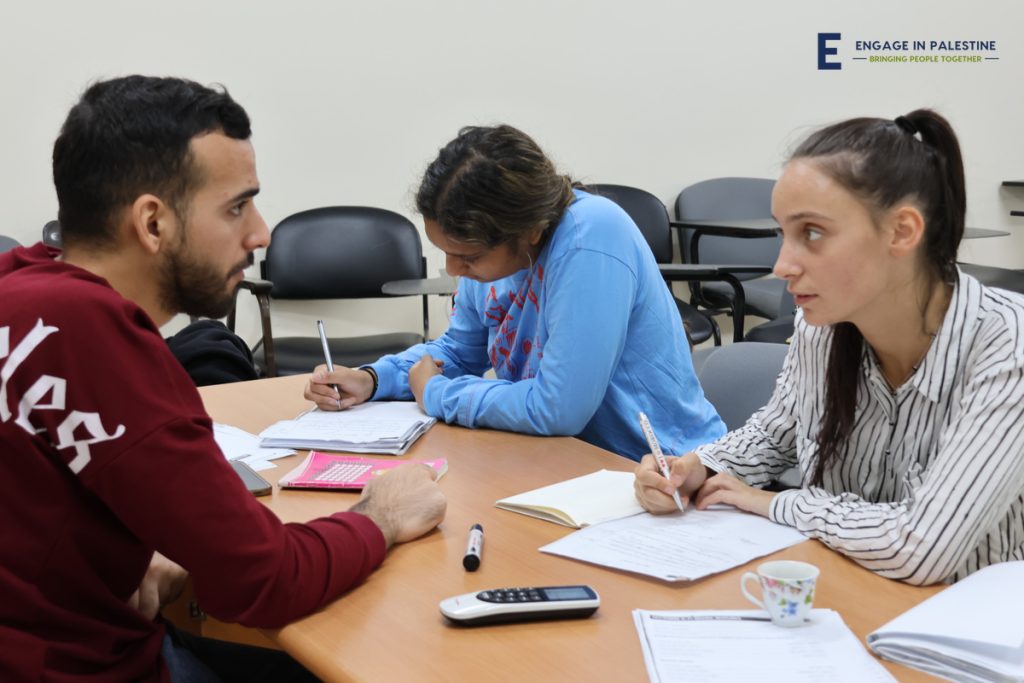
Install An Arabic Keyboard On Your Phone
Installing an Arabic keyboard on your phone is free and easy. It allows you to start using Arabic more in your daily life, whether through texting in Arabic with friends, searching the Internet, or writing captions in Arabic for your social media posts.
DON’T Use Google Translate
Google Translate can be awkward or inaccurate at the best of times, but this is especially true for Arabic. Google Translate uses MSA, so it won’t be accurate if you are trying to learn a local dialect Arabic is full of poetry and metaphors and Google Translate will often translate these literally, which completely changes and loses the intended meaning, often giving very bizarre translations in English.
Keep A Notebook For New Vocabulary
Keep a notebook so you can write down new words you see or hear so that you remember new vocabulary you encounter. If you are unsure about the meaning or spelling, you can look them up, or ask a friend or teacher about them later.
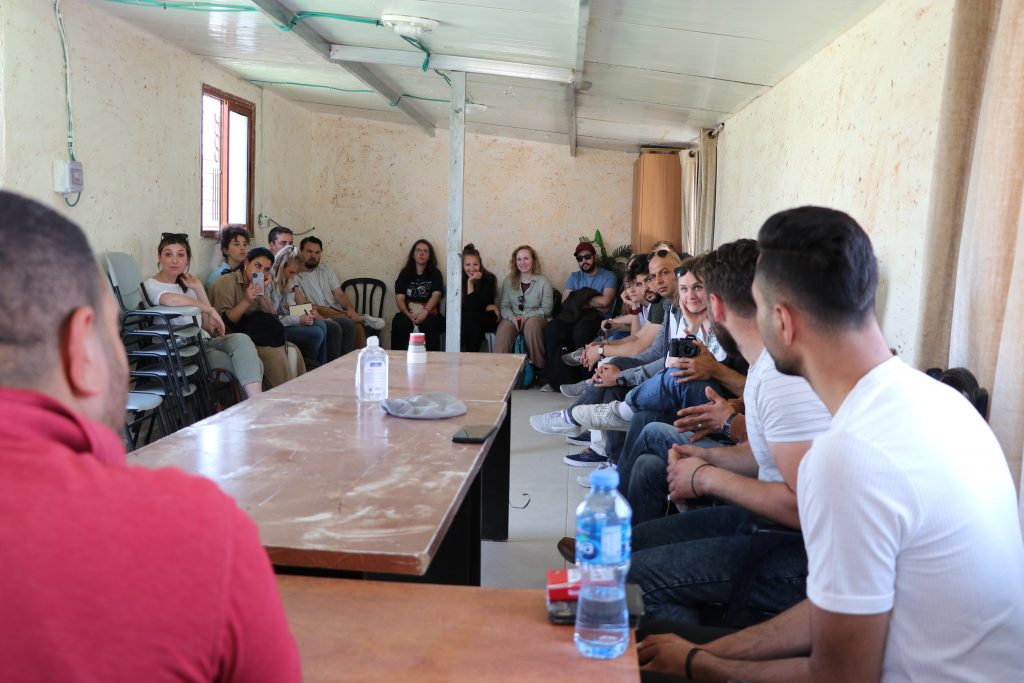

Watch Videos On Youtube
There is an abundance of free videos to help you study Arabic on YouTube, whether you are looking to learn how to pronounce Arabic letters, vocabulary, colloquial phrases, or grammar. YouTube can also be a great way to test out different dialects before committing to one.
Watch Arabic TV And Films
The more you immerse yourself in Arabic culture, the quicker you will pick up and enjoy the language. There are many Arabic films and series on Netflix, you could also ask an Arab friend for recommendations of series and films to watch. You can then use subtitles to build your understanding of the show.
Listen To Arabic Songs
If you are a beginner, listening to slower songs with clear pronunciation will likely be most helpful. However, if you are at a more advanced level, listening to rap and hip-hop songs can be a great way to challenge yourself. Just a few of the most famous Arab singers that you might like to check out are Umm Kulthum (Egypt), Fairuz (Lebanon), Abdel Halim Hafez (Egypt), Reem Bana (Palestine), and Nancy Ajram (Lebanon).
Speak Native!
Some of the best advice when learning any language is to find a native speaker to practice with. If they can speak your language, they will be able to explain everything to you more easily and give you recommendations for articles, films, or websites to improve your Arabic. They can also teach you the quirks of their dialect much better than a non-native speaker. If you make friends with an Arabic speaker, you will be able to informally improve your Arabic through practicing conversation about various topics with them.
Practice, Practice, Practice
The only way to get better at speaking Arabic is to speak. The only way to get better at listening to and understanding Arabic is to listen to it. Furthermore, the only way to get better at reading and writing Arabic is to read and write. It might sound simple, but many language learners think if they write and read enough, they will get better at speaking. If only that were true!
Work On Your Confidence While Studying Arabic
A big reason why people spend years studying a language but are still unable to speak it is that they lack the confidence to speak. One way to build confidence is to be kind and encourage yourself. Think about the kind of teacher you would prefer – one who is kind and encouraging, or one who criticizes you for every mistake. Then treat yourself how you wish to be treated. It’s also important to accept that you are going to make mistakes because you are human, that’s okay and that’s normal and everyone makes mistakes. Mistakes show you what you can improve on and what you still need to learn.
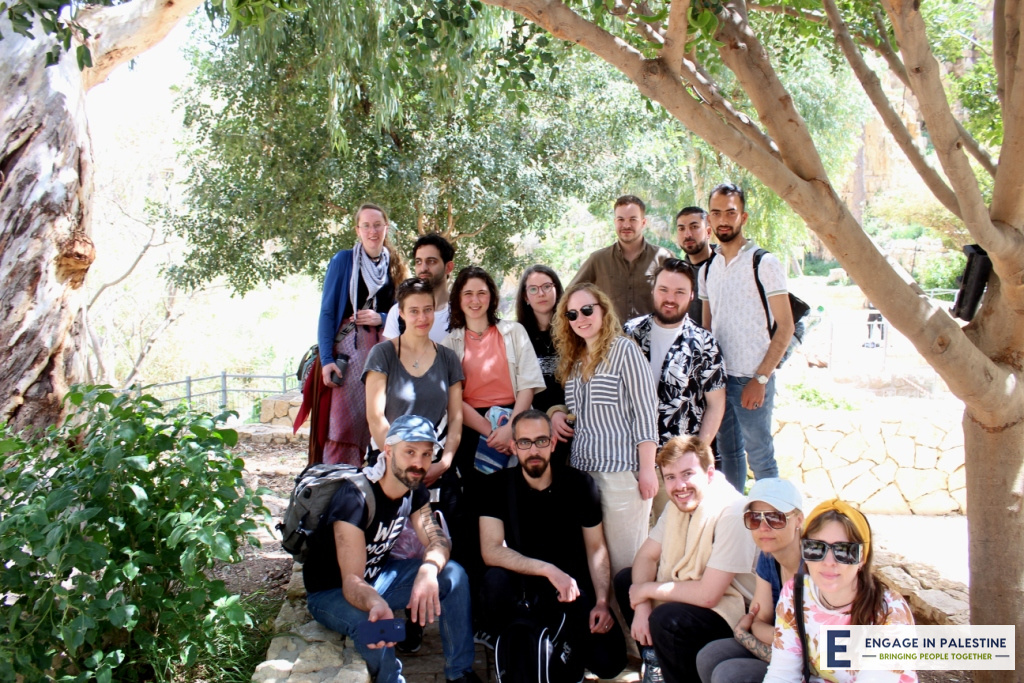
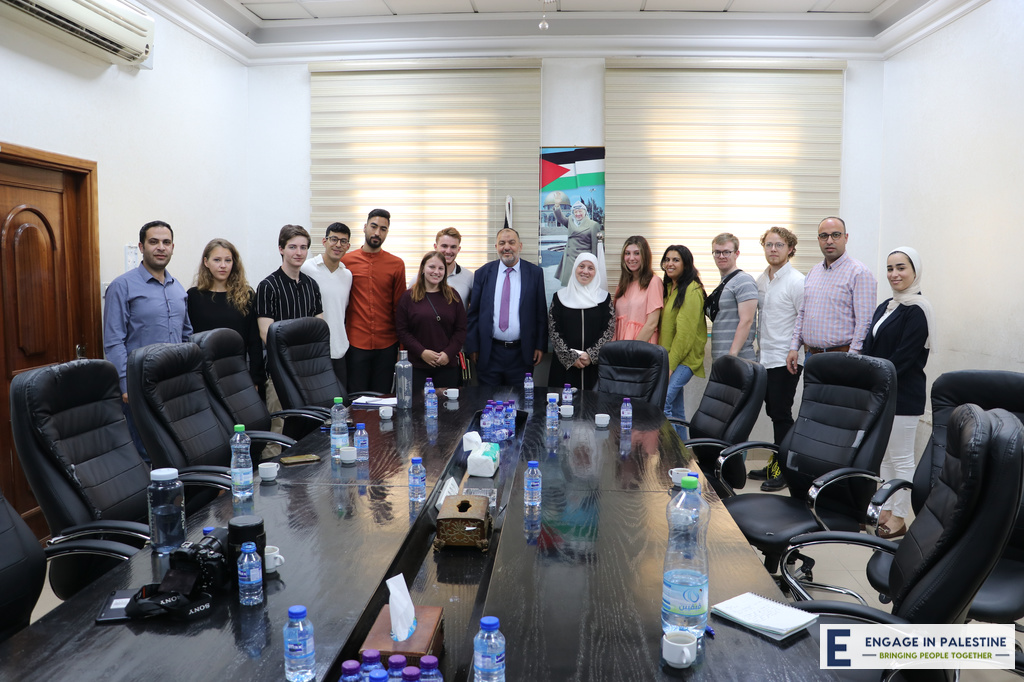
Study Arabic With Engage In Palestine
Engage in Palestine is a fantastic place to study Arabic as it mixes dedicated courses with being immersed in the environment of learning from local speakers. We offer intensive Arabic courses, involving up to five hours of classes per day plus homework, which will rapidly build your language level in the minimal possible time.
Alternatively, if you want more time to explore Palestine and its culture, you can enroll in a volunteer program, where you will volunteer and receive several hours of Arabic lessons a week. Whichever program you choose, you will spend much of your time at Engage in Palestine’s center with the permanent Palestinian staff who can help you with your Arabic, practicing and correcting your mistakes, even outside of lesson time.
Engage in Palestine is based in Hebron, the biggest city in the West Bank, of Palestine. There are many interesting things to do here and there are great opportunities to continue your Arabic development through meeting and befriending locals who are eager to help people speak their language. Many of them speak English as well which helps with the translation and the language learning process.
Students and volunteers can make lots of Arabic friends and contacts while in Hebron which will allow them to continue practicing their Arabic even after leaving the country. Whether it’s through WhatsApp conversations or phone calls, they can practice reading, writing, speaking, and listening to Arabic even once they’re back in their home country.
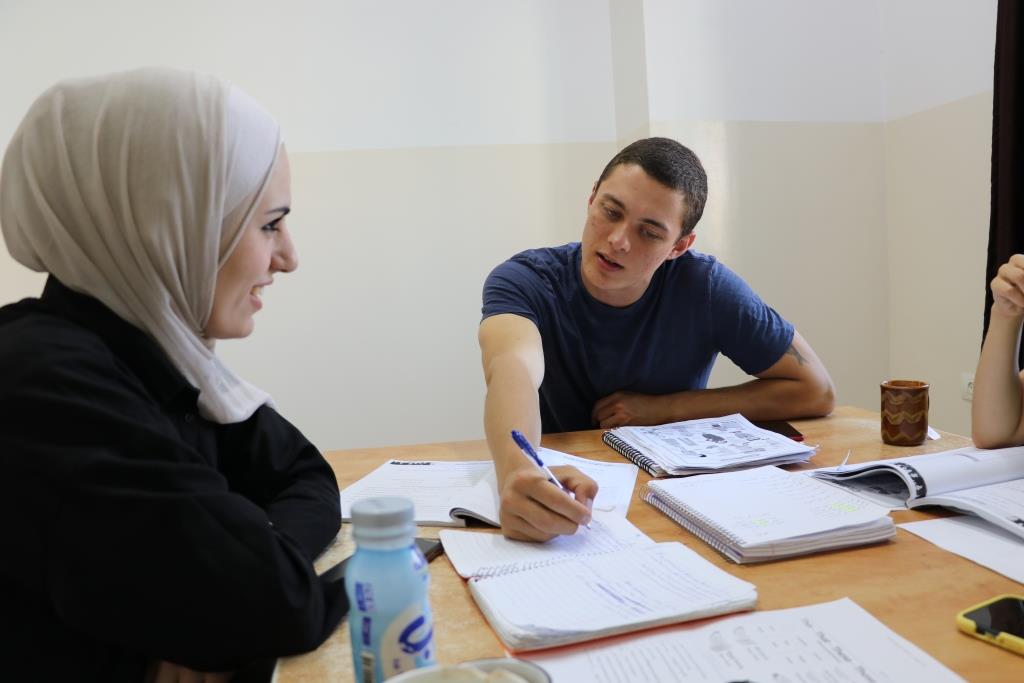

If you cannot join us in person, we also offer online lessons.
List of 5 Best Intensive Arabic Courses
1. Modern Standard Arabic Intensive Courses
Modern Standard Arabic (MSA) and Classical Arabic are largely considered the same dialect, with only minor differences in phrasing and diction. Since they share an identical vocabulary, students enrolled in our intensive Modern Standard Arabic programs will also be well-prepared to understand and engage with Classical Arabic.
At Engage in Palestine, Modern Standard Arabic is taught at eight different levels, from complete beginner to highly advanced.
Modern Standard Arabic Course Details: >>
2. Palestinian Colloquial Arabic Courses
The Study Palestinian Arabic intensive program is perfect for those who want to immerse themselves in the diverse culture of Palestine and the Levant or wish to connect with the wider Palestinian diaspora. Traveling to Hebron and acquiring the Palestinian spoken dialect will connect you with the region’s rich history and will better help you to understand its contemporary role in the Arab world and internationally.
At Engage in Palestine, the Palestinian Colloquial Arabic courses are available at six different levels ranging from beginners to intermediate and advanced levels. | Palestinian Colloquial Arabic: Course details: >>
3. Levantine Colloquial Arabic
The Study Levantine Arabic intensive program is an ideal opportunity to expand your spoken Arabic to include the Levantine dialect.
Fortunately for participants of this program, our center is located in the heart of the Levant in the vibrant city of Hebron. As Levantine Arabic is one of the most widely spoken Arabic dialects, its acquisition is the ultimate passport connecting you with the Arabic-speaking world. Levantine Colloquial Arabic Course details: >>
4. Individual Arabic Courses
Engage in Palestine offers intensive and non-intensive private Arabic lessons in a wide range of dialects, all taught one-to-one by an Engage in Palestine Arabic teacher. As an Arabic student, you will have the opportunity to customize your Arabic course according to your needs and wishes. Our Palestinian teachers will prepare a curriculum to meet your needs, whether your wish is to study Palestinian spoken Arabic, Levantine or Classical/Standard Arabic.
Our wide range of immersive Arabic courses cover both standardised Arabic classes and specific colloquial dialects from Syria, Jordan, Lebanon, Palestine and other regions of the Levant. As such, our Arabic lessons are suitable for a wide range of learners, from international businesspeople, diplomats and travellers to people wishing to read the Quran. Our flexible private lessons can specialise your curriculum to suit your needs and requirements.
5. Online Arabic Courses
In addition to the Arabic programs offered in Hebron, we provide online Arabic lessons in Levantine, Palestinian, Jordanian, and Lebanese dialects, taught by qualified Palestinian teachers and instructors. For more details about these programs, please visit this link: Levantine and Palestinian Arabic Online Lessons. : Levantine and Palestinian Arabic online lessons.
| Super-Intensive, Intensive & Non-Intensive Arabic Immersion Courses | Individual Levantine Arabic Courses |
| Colloquial Palestinian Arabic Lessons | Study Arabic Courses for Arabs |
| Modern Standard Arabic Programs | Shami (اللهجة الشامية) Arabic Programs |
| Ammiya Intensive Arabic Programs | Palestinian & Levantine Online Arabic Courses |
| Mixed Arabic Courses (Modern Standard Arabic and Colloquial Palestinian Arabic) | Arabic Language Course for Reading and Understanding the Quran |
Summer Programs To Study Arabic
If you are looking to study Arabic in Palestine or the Middle East in the summer, Engage in Palestine offers intensive small-group one-month courses during the summer months (June through September) that begin on the first day of each month. Typically there are 2-5 students in each small group. You may choose whether you wish to study Modern Standard Arabic, Levantine, or Colloquial Palestinian Arabic.
Each type of Arabic is offered in several different levels, from total beginner up to advanced. You may also choose whether you wish to study with us for one month, two months, or three months. Studying with us in summer is a wonderful opportunity for students or anyone else with an extended break during summer.
The Benefits Of Studying Arabic At Engage In Palestine
We offer the choice between colloquial Palestinian Arabic and MSA. Our courses also have a high degree of flexibility – you can choose between a super intensive, intensive, or non-intensive course and you are free to choose the length of your course (1-13 weeks), as well as the start and end dates for your course. When you study one-on-one with one of our wonderful teachers, you will also be able to tailor your lessons to your own needs and interests.
As part of your Arabic course, we provide all learning materials, accommodation, daily breakfast, and occasional dinners. Also included are organized trips to the sights of Hebron like the famous Ibrahim Mosque, the glass factory, and the kuffiyeh factory, along with local organizations of political or cultural significance. You will also have at least two days off per week to explore the fascinating nearby cities such as Jerusalem, Ramallah, Bethlehem, Nablus, Jericho, and the Dead Sea, either by yourself or with the new friends that you will undoubtedly make here.
These are just a few of the benefits of studying with us!
The Impact Of Studying Arabic With Us In Palestine
With all of our Arabic courses and volunteer programs, we aim to make a long-term difference for both the Palestinian local community and you, through the exchange of ideas and “walking in each other’s shoes”. Our programs and courses foster shared learning, for both our community and you. During your course, you will have the chance to learn so much more than just the Arabic language. You will also get to learn about Palestinian culture and customs as well as the political situation.
Additionally, you will have many opportunities outside the classroom to practice your Arabic naturally and authentically while navigating your new life in Hebron. No matter how developed your Arabic abilities are, you will find that many Palestinians are patient communicators and will be happy that you have taken an interest and are making an effort to speak their language.
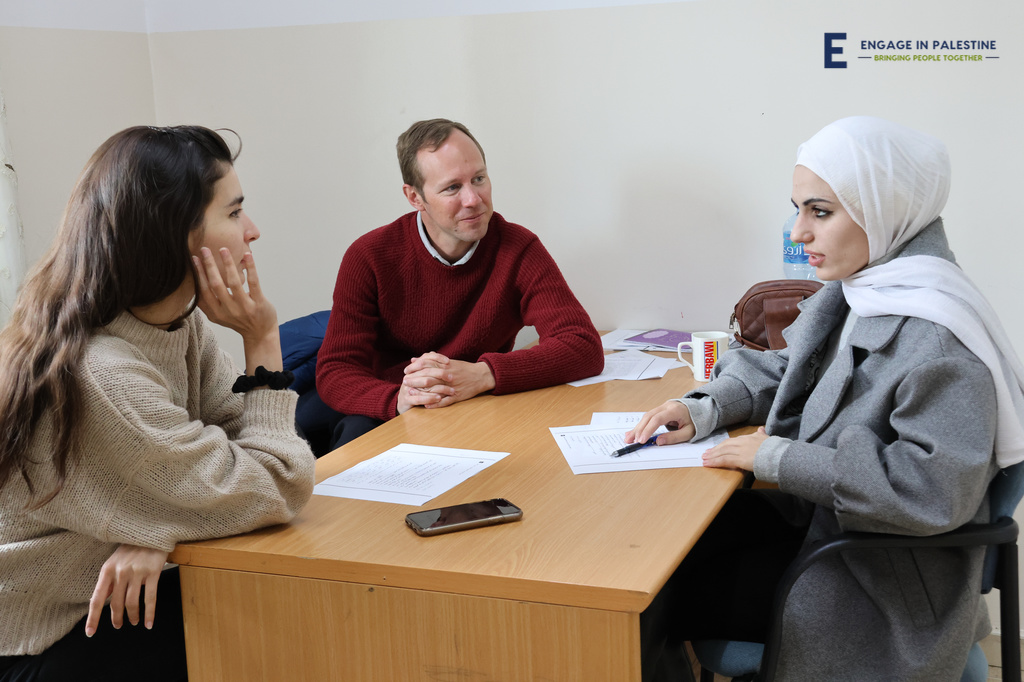
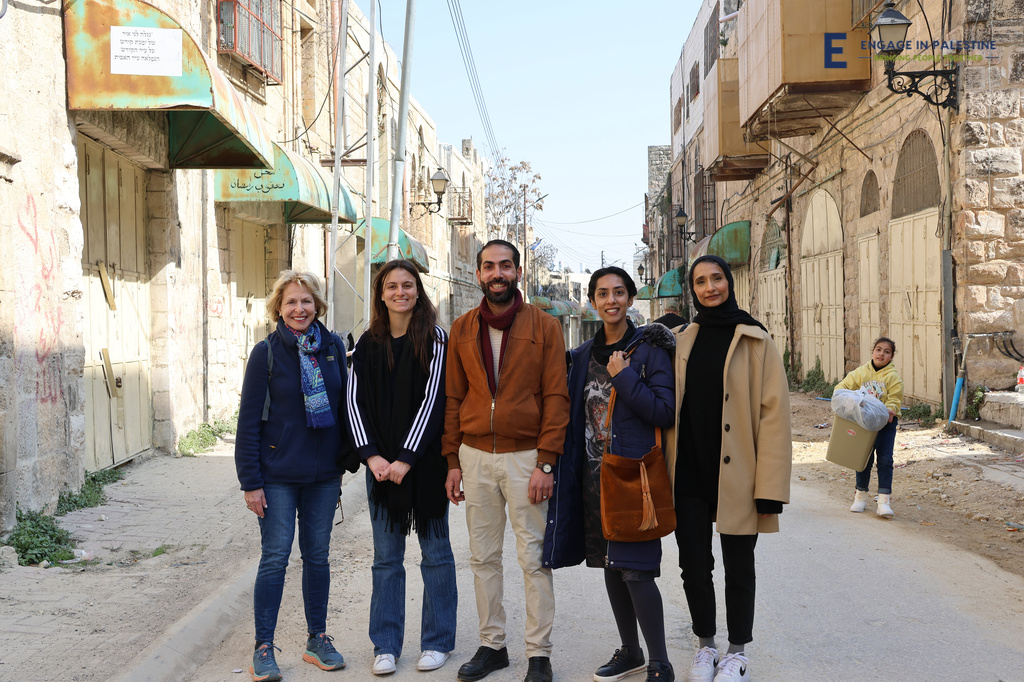
Reviews and Awards
Engage in Palestine has been honored with several prestigious Community Awards, recognized as the Best Language School and Top Volunteer and Internship Program Provider for the years 2019, 2021, 2022, and 2023. For more details, please visit our profiles on GoOverseas.com and GoAbroad.com.
- +840 Reviews and ratings (96.8%) on gooverseas.com
- +170 Reviews and ratings on goabroad.com
- Participants’ video testimonials
Summary
Arabic is the fourth most spoken language in the world and not only is it a rich and beautiful language, but it’s also growing in importance due to globalization. There are many different dialects of Arabic to choose from, but we recommend learning the Levantine dialect because it’s one of the most widely spoken and understood dialects, being the closest to Modern Standard Arabic. Here we have provided you with several tips to help you study Arabic.
However, we think the best way to study Arabic is to come and study it with us at Engage in Palestine and immerse yourself in our language and our Palestinian culture, while also making memories to last a lifetime. Many international students and volunteers join us, so you will have the chance to make friends with Palestinians as well as people from all over the world.
When you study with us, you will not only be taught by one of our wonderful native Arabic-speaking teachers, but you will also have a flexible course, where you can choose the length, the intensity, and the start and end dates. In addition to an immersion in Arabic and Palestinian culture, we also include accommodation, daily breakfast, and several visits around Hebron city to help you learn more about Palestine politically and culturally.
We hope to hear from you and meet you in Palestine soon!
Contact Us
Should you have any questions, please do not hesitate to contact us at:
WhatsApp:+972 599 479 880
Website: https://ecpalestine.org/
EC Website: https://excellencenter.org/
Instagram: https://www.instagram.com/excellence.center
Facebook page: https://www.facebook.com/ExcellenceCenter
